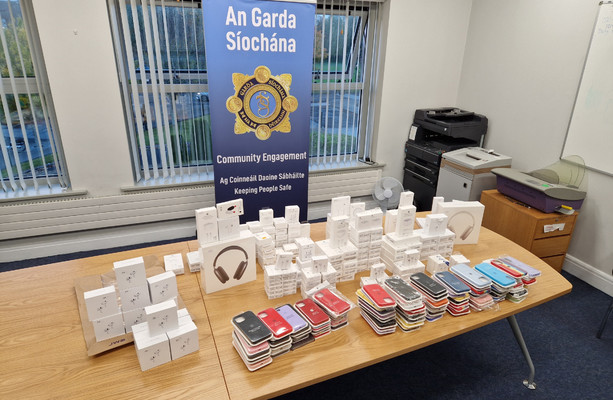Headline: Hundreds Demand Action on Occupied Territories Bill in Dublin Protest
Several hundred pro-Palestine demonstrators rallied on O’Connell Street in Dublin on Saturday, urging the Irish Government to quickly enact the Occupied Territories Bill. Organized by the Ireland Palestine Solidarity Campaign (IPSC), the protest highlighted a growing frustration over the delay in legislation aimed at banning trade between Ireland and Israel’s illegal settlements in Occupied Palestinian Territories.
The demonstration closely followed reports of a devastating Israeli air strike in Jabalia, Gaza, which reportedly killed at least 30 Palestinians, including 20 women and children. The ongoing conflict has led to the deaths of over 40,000 Palestinians since Israel’s invasion of the Gaza Strip last year, initiated after the Hamas-led attacks on October 7 that resulted in the loss of 1,200 Israeli lives.
Calls for Urgent Action on Legislation
Peter Kelehan, a retired doctor from Dalkey, voiced his deep concern regarding the humanitarian crisis unfolding in Gaza and Lebanon. Holding both a Palestinian and a Lebanese flag, Dr. Kelehan stated, "The terrible slaughter that’s going on in Gaza at the moment, and now, in fact, in Lebanon, is horrifying." He criticized the government’s delay in passing the Occupied Territories Bill, asserting, “They should do it immediately. It doesn’t have to go to the Attorney General again; there’s nothing stopping it.”
Betty Purcell, a prominent member of the IPSC, echoed these sentiments, stating, “While the Irish Government has talked the talk, it has not walked the walk.” She referenced comments made by former Green Party leader Eamon Ryan, who suggested that aircraft allegedly transporting munitions through Irish airspace en route to Israel may not have required explicit permission from the Department of Transport for part of their cargo, a remark that was met with significant criticism.
Context of the Protest Amid Ongoing Conflict
As the conflict continues to escalate, air strikes by Israel have targeted areas within Gaza, prompting widespread condemnation and calls for immediate sanctions against Israel from various healthcare and humanitarian organizations. Ailís O’Dea, representing Irish Healthcare Workers for Palestine, condemned Israel’s targeting of healthcare facilities, particularly highlighting the airstrike on al-Aqsa Hospital in Deir al-Balah that resulted in multiple fatalities.
“Sanctions on Israel are needed now,” she asserted, emphasizing the urgent need for governmental action.
Social Media and Public Discourse
The protest also sparked brief exchanges among attendees, further illustrating the divided sentiment on the issue. One participant approached the crowd and shouted, “What about the Irish?” before being escorted away, highlighting the tensions that can arise in discussions of foreign policy and humanitarian intervention.
On the international stage, the European Union’s foreign policy chief, Josep Borrell, discussed the possibility of strengthening the United Nations peacekeeping mission in Lebanon, known as Unifil. Amid allegations of Israeli attacks on UN forces stationed in the region, Borrell emphasized the importance of respecting UN personnel globally. “Maybe the mission of the Unifil has to be reviewed but the first thing to do is a ceasefire,” he stated, reflecting concerns about peacekeeping forces’ safety in increasingly dangerous zones.
Broader Implications and Future Outlook
The situation continues to evolve rapidly, with the killing of Hamas leader Yahya Sinwar by Israeli forces potentially representing a pivotal moment in the conflict. Borrell noted this could offer an opportunity for de-escalation, stating that “a new perspective is open and we have to use it to reach a ceasefire, release the remaining [Israeli] hostages, and look for a political perspective.”
With nearly 400 Irish troops currently stationed in Lebanon as part of the Unifil mission, the safety of these forces remains a priority for the Irish Government. Ireland has contributed troops to this peacekeeping mission since 1978, demonstrating a longstanding commitment to international peace efforts.
Closing Thoughts
As the protest concluded, the sentiment was clear among demonstrators: the need for immediate governmental action on the Occupied Territories Bill is pressing. With public opinion shifting and humanitarian concerns at an all-time high, the next steps taken by the Irish Government will be closely scrutinized.
Citizens and advocates alike are invited to share their thoughts on the situation and the government’s role in addressing these urgent humanitarian needs. The dialogue surrounding Israel and Palestine continues to evolve, and this protest marks just one chapter in an ongoing narrative that requires careful consideration and responsiveness from those in power.
For further reading on related topics, explore our articles on the implications of foreign policy on local communities and the humanitarian impacts of legislative decisions.
Feel free to leave your comments below and share your perspectives on this pressing issue.
(Note: All facts and quotes are derived from recent reporting, and this article remains neutral, aiming to inform the public on a critical human rights topic.)


